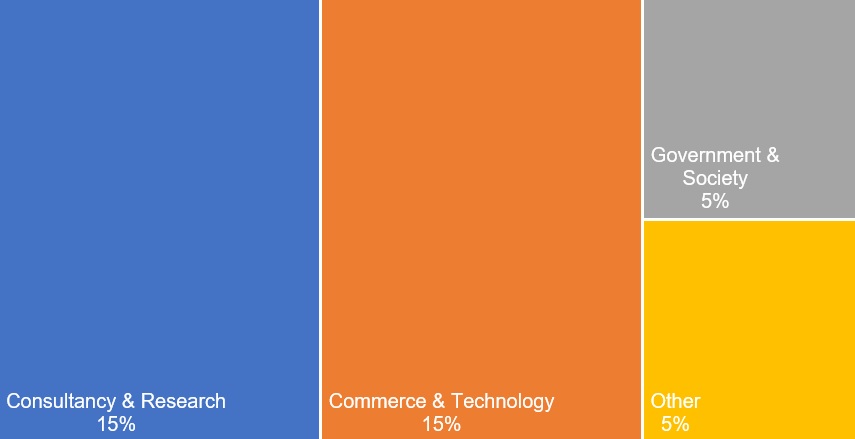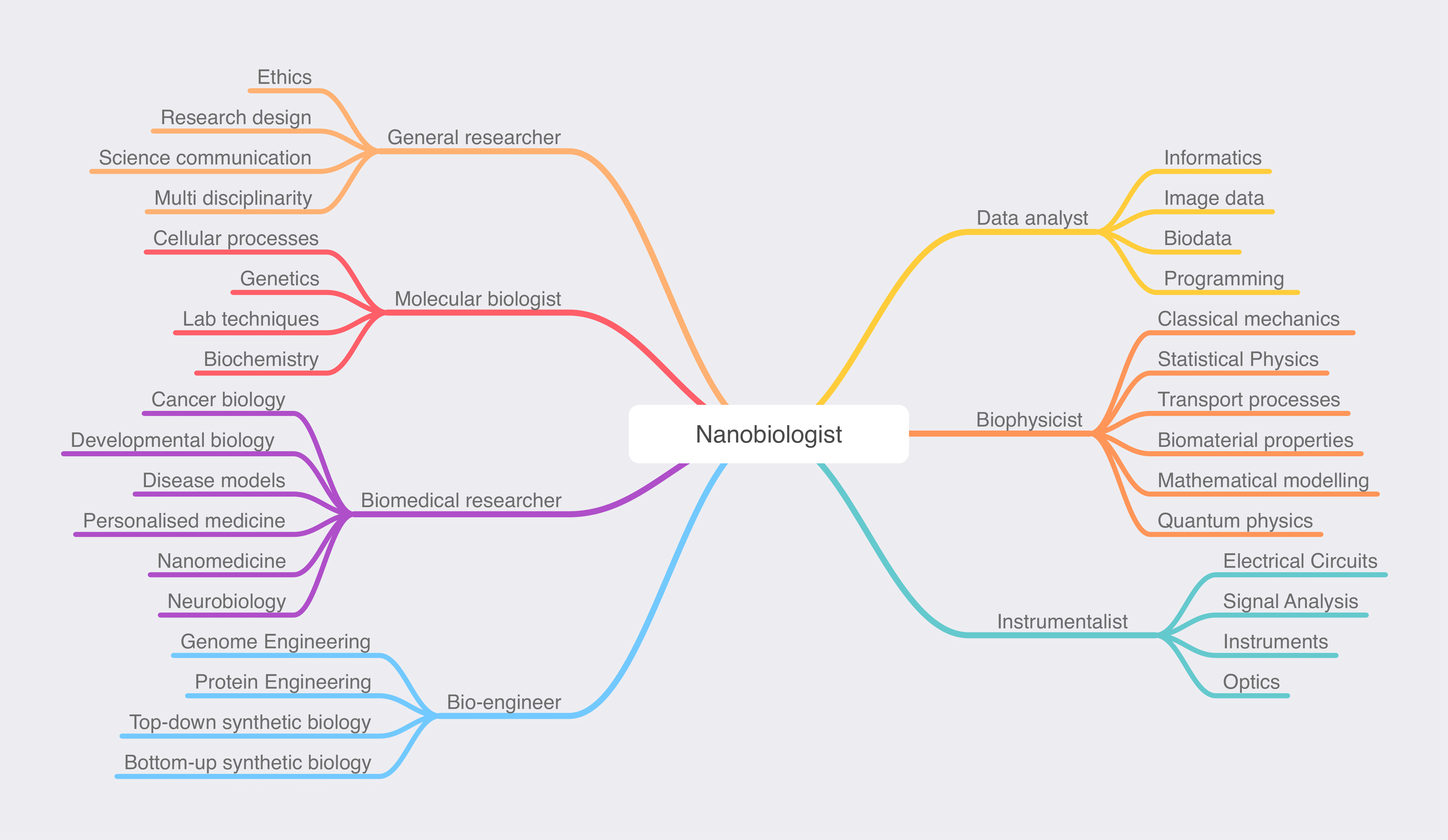Career opportunities
Following graduation, you will be a trained, multi-disciplinary analyst and problem solver. You will have learned how to analyse complex problems, such as those that occur in biological systems, and have mastered the quantitative tools needed to address these problems. You will have acquired skills to apply in Nanobiology research areas such as Biomedicine, Synthetic Biology, Optics and Biotechnology either within academia, medical institutions or industry.
Beyond conducting research, you could find your place at an industrial company, a scientific institution or a government agency where you will use your scientific knowledge to draft and evaluate research proposals and policy plans submitted by national and international research groups.
Your ability to shift between the domains of science and technology also forms an excellent foundation for a career as a teacher, science journalist or advisor.
Research Scientists
- In academia: Molecular Medicine, Biophysics on topics such as stem cell and cancer research, Synthetic Biology and Nanoscience.
- In business: Scientist/project manager in research and development in companies such as DSM and Philips.
Commerce & Technology
- Developer or product specialist in imaging/nanotech instruments.
- Software specialist in imaging/data analysis.
Government & Society
- Science communication/education.
- Science funding and policy organisations.
- Editor in scientific and academic publishing.
Chances on the labour market
Your excellent problem-solving skills will afford you first-rate job opportunities. The gross starting salary based on 40 hours per week is approximately €3,000. Have a look at this page for more information about the job market.
Completing a PhD
A scientific career starts with a PhD trajectory. You work in an international environment and deepen and broaden your knowledge in four years through the Doctoral Education Programme of the Graduate School. Ultimately, you write a dissertation in which you record your contribution to science. After your PhD you can call yourself Dr. (PhD). The faculty offers various options for this.



